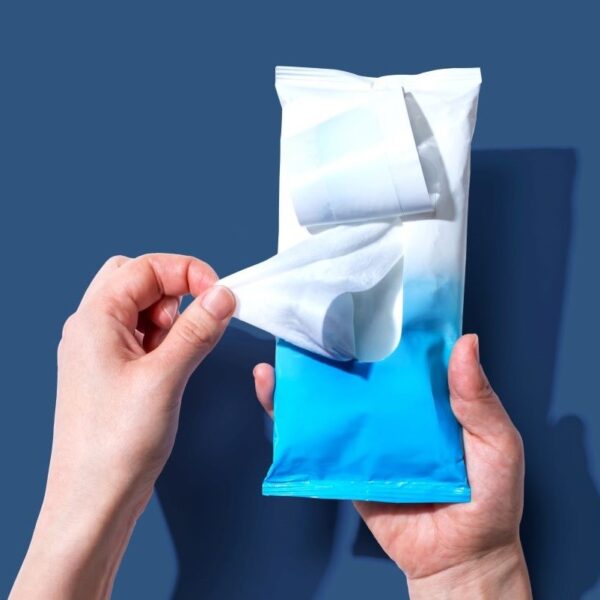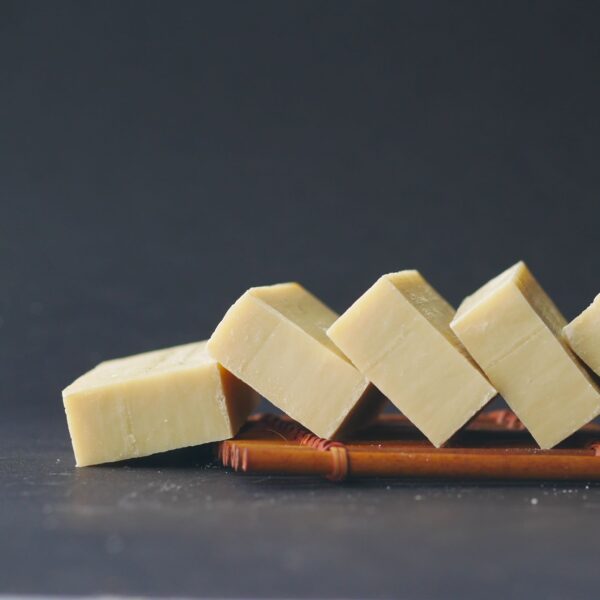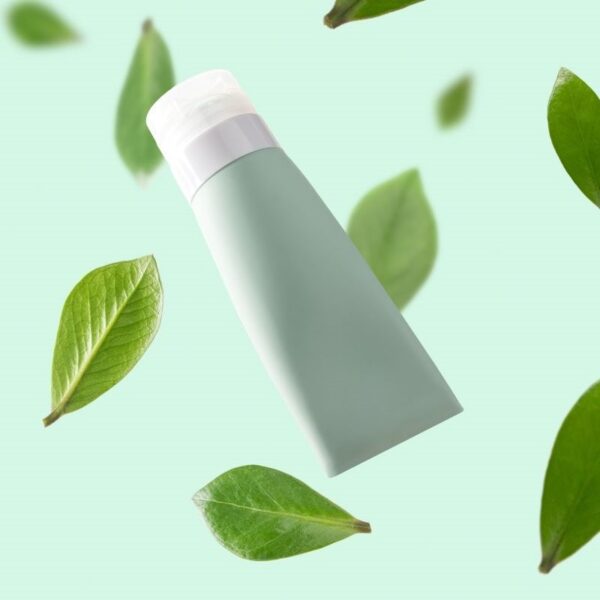Polyols, also called polyalcohols or sugar alcohols, are naturally occurring carbohydrates containing multiple hydroxyl groups. They are popularly used as sweeteners in food products to replace table sugar. In the personal care industry, polyols offer skincare benefits and act as sweeteners in oral care products without the drawbacks of traditional sugars. Sugar alcohols can act as a humectant, emollient, texture enhancer, solvent, and lubricant in cosmetic formulations.
What are Polyols?
Polyols are hydrogenated carbohydrates produced by reducing their carbonyl groups to primary or secondary hydroxyl groups. Xylitol, sorbitol, erythritol, glycerol, and maltitol are all sugar alcohols. The chemical structures of these polyols are provided below.
| Maltitol Source: Wikipedia | Erythritol Source: Wikipedia |
| Xylitol Source: Wikidata | Sorbitol Source: Wikipedia |
| Glycerol Source: Wikipedia |
How are Polyols Produced?
Polyols are naturally occurring substances. However, they can also be produced through chemical synthesis, hydrogenation, and fermentation. Bacteria, yeast, or fungi can be used for fermentative production of polyols. They can also be made synthetically by catalytic hydrogenation of the sugars.
Applications in the Personal Care Industry
| Function | Applications |
| Humectant | Sugar alcohols have humectant properties, so they can attract and retain moisture. For this reason, they can improve the efficacy of moisturizing products. |
| Sweetening Agent | Sugar alcohols provide sweetness to oral care products like toothpaste and mouthwash without promoting tooth decay. They can help improve the taste of these products without compromising oral health. |
| Emollient | Sugar alcohols act as emollients and help soften and smooth the skin by forming a protective layer on the skin’s surface. This can help to improve the texture and appearance of the skin. |
| Texture Enhancer | Sugar alcohols can help improve the texture of personal care products, making them smoother and easier to apply. They can contribute to the overall feel and consistency of products like creams, gels and lotions. |
| Solvent | Sugar alcohols can act as a solvent that can dissolve other ingredients and help them blend smoothly. |
| Lubricant | Sugar alcohols contribute to a smooth and slippery texture, improving the spreadability of products. |
Product Examples
| Type | Examples |
| Skincare | Moisturizers, lotions, creams, serums, and facial masks |
| Oral Care | Toothpaste, mouthwash, and chewing gum |
| Hair Care | Shampoos, conditioners, hair masks and styling products |
| Makeup | Foundations, lipsticks, lip balms and eyeliners |
| Deodorants | Deodorants and antiperspirants |
Properties of Polyols
| Maltitol | Erythritol | Xylitol | Sorbitol | Glycerol | |
| Molecular Weight | 344 | 122 | 152 | 101 | 92.1 g/mol |
| Melting Point | 150℃ | 122℃ | 94℃ | 101℃ | 17.8°C |
| Physical Form | Powder, crystals (granules) & syrup | Powder, crystals (granules) & syrup | Powder, crystals (granules) & syrup | Powder, crystals (granules) & syrup | Liquid |
| Solubility | 175g/100g water | 47g/100g water | 200g/100g water | 235g/100g water | 126g/100 mL |
| Calorific Value | 2.1 cal/g | 0.2 cal/g | 2.4 cal/g | 2.6 cal/g | 4.32 kcal/g |
| Relative Sweetness | 80-90% | 60-70% | 80-100% | 50-60% | 60-70% |
| Shelf Life | 24-36 months | 24-36 months | 24-36 months | 24-36 months | 24-36 months |
| Claims | Non-cariogenic, Plant-based*, Organic*, Non-GMO*, Natural*, Allergen-free* | Non-cariogenic, Plant-based*, Organic*, Non-GMO*, Natural*, Allergen-free* | Non-cariogenic, Plant-based*, Organic*, Non-GMO*, Natural*, Allergen-free* | Non-cariogenic, Plant-based*, Organic*, Non-GMO*, Natural*, Allergen-free* | Non-cariogenic, Plant-based*, Organic*, Non-GMO*, Natural*, Allergen-free* |
| Storage Conditions | Cool, dry & dark place < 40℃) | Cool, dry & dark place < 40℃) | Cool, dry & dark place < 40℃) | Cool, dry & dark place < 40℃) | Cool, dry & dark place < 40℃) |
Typical Formulations
Toothpaste
| Components | % Composition |
| Erythritol (80 µm) | 40 |
| Purified water | 20 |
| Sodium alginate | 0.5 |
| Sodium CMC | 1 |
| Xanthan gum | 0.05 |
| Sodium fluoride | 0.21 |
| Sorbitol | q.s. |
| PEG 6000 | 5 |
| Saccharin sodium | 0.05 |
| Abrasive silica | 10 |
| SLS | 1.5 |
| B-Glycyrrhetinic acid | 0.01 |
| Flavor | 1.2 |
Source: Google Patents
Moisturizing Gel
| Part | Component | % Composition |
| Part A | Deionized water | qsp 100% |
| Ultrez 10 | 0.4 | |
| Part B | Sodium hydroxide 30% | 0.4 |
| Deionized water | 4.0 | |
| Part C | Potassium sorbate | 0.1 |
| Part D | P1 | 3.0 |
P1 is a solution comprising between 2000 ppm and 20000 ppm of homarine and 20% of erythritol. Erythritol is used in the formulation for its osmo-protective effect.
Source: Google Patents
Deodorant Stick
| Components | % Composition |
| Vegetable glycerin | 66.0 |
| Sugar alcohol blend | 3.0 |
| Beta cyclodextrin | 0.5 |
| Trehalose | 1.0 |
| Microcrystalline cellulose & alginate | 0.6 |
| Hydrosol | 0.6 |
| Herbal extract blend | 0.5 |
| Sodium stearate | 6.0 |
| Glucopolysaccharide | 0.1 |
| Inulin & Alpha glucan oligosaccharide | 1.0 |
| Water | qs to 100 |
Source: Google Patents
Formulation Considerations
Cooling Effect
Polyols have a high heat of solution, so dissolving their crystalline forms in the mouth creates a pleasant cooling sensation. The cooling effect of polyols varies. Erythritol has the strongest cooling effect and isomalt the mildest. While this effect may be desirable for peppermint and menthol products in oral care, it may be unsuitable for other products.
Stability
| Phase Stability | Stable against crystallization |
| Oxidative Stability | Stable |
| Light Stability | Stable |
| pH Stability | 3.5-12 |
Effects on the Properties of Personal Care Products
- Effects of molecular weight: Typically, as the molecular weight of a polyol decreases, osmolality increases, freezing point decreases, viscosity decreases, and boiling point increases.
- Emulsifying and texturizing: Sugar alcohols can act as emulsifiers, as they can help to stabilize emulsions. Additionally, they can help improve cosmetic products’ texture and mouthfeel.
- Viscosity improvement: The viscosity of sugar alcohols increases with heat. The viscosity of erythritol and xylitol are relatively low and thus add less body compared to maltitol.
Beneficial Effects on Skin
- Enhanced moisturization: Polyols, particularly glycerin, act as humectants, helping to bind water within the skin, thereby promoting hydration.
- Reduced trans-epidermal water loss: Polyols decrease water loss by keeping the skin hydrated, improving skin barrier function.
- Smooth skin surface: Studies show that polyols can improve skin surface roughness, contributing to a smoother appearance.
- Non-irritating properties: Certain polyols, such as glycols, are gentle on the skin, making them suitable for sensitive skin types.
Safety and Regulatory Considerations
| FDA Information | In the United States, the regulation of polyols in cosmetics falls under the jurisdiction of the Food and Drug Administration (FDA). |
| EU Information | Polyols used for purposes other than food, feed, or pharmaceuticals are subject to the requirements of the REACH Regulation. |
Identification Numbers
| Polyol | Maltitol | Erythritol | Xylitol | Sorbitol | Glycerol |
| IUPAC Name | 4-O-α-D-Glucopyranosyl-D-glucitol | (2S,3R)-butane-1,2,3,4-tetrol | (2S,4R)-pentane-1,2,3,4,5-pentol | (2R,3R,4R,5S)-hexane-1,2,3,4,5,6-hexol | 1, 2, 3- Trihydroxypropane |
| CAS Number | 585-88-6 | 149-32-6 | 87-99-0 | 50-70-4 | 56-81-5 |
| EC Number | 209-567-0 | 205-737-3 | 201-788-0 | 200-061-5 | 200-289-5 |
| INCI Name | MALTITOL | ERYTHRITOL | XYLITOL | SORBITOL | GLYCERIN |
Fun Facts About Polyols
- Sugar alcohols are hygroscopic, meaning they absorb moisture from their surroundings. This property can help keep products stable by preventing them from drying out or becoming too hard.
- In addition to their moisturizing properties, some sugar alcohols like sorbitol and xylitol also exhibit mild preservative properties, helping to extend the shelf life of certain personal care products.







